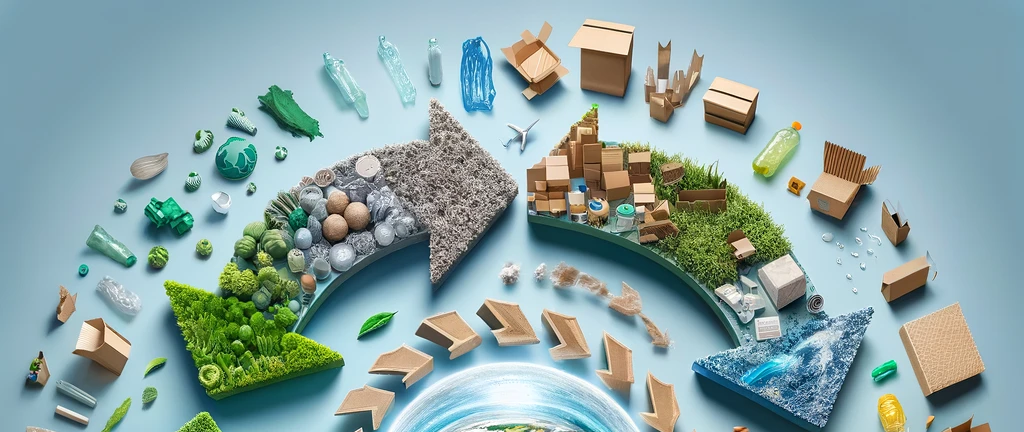Towards a more sustainable economy with bio-based products?
The use of bio-based products, derived from biomass rather than fossil resources, is on the rise. This trend is driven by the search for more sustainable solutions in the face of current environmental challenges. Bio-based products offer numerous advantages.
Reduction of greenhouse gas emissions and use of renewable resources
The production of bio-based products generally generates fewer greenhouse gas emissions and utilizes renewable resources, such as plants and algae, which can be replanted and harvested. This helps reduce our dependence on fossil resources, which are limited and polluting.
Improvement of food security and job creation
The production of bio-based products can contribute to improving food security by using non-arable land for growing raw materials and creating jobs in agriculture, industry, and research sectors.
Bio-based products in a wide range of applications
Construction, packaging, textiles, and chemicals: bio-based products can be used in a wide variety of applications, contributing to the construction of more sustainable homes, buildings, and infrastructures, manufacturing eco-friendly packaging, soft textiles for both skin and the environment, and chemicals derived from biomass.
Challenges and perspectives for a promising future
Despite these numerous advantages, challenges remain for the widespread adoption of bio-based products, including the sometimes higher cost compared to traditional products, limited availability of certain raw materials, and performances that may not match those of traditional products.
However, technological advances and increasing demand are driving down costs, improving availability, and enhancing the performance of bio-based products.
The future of bio-based products is promising. They have the potential to reduce our environmental impact, create jobs, and improve our quality of life. With continued investment in research and development, bio-based products could become the norm in many sectors of the economy.

